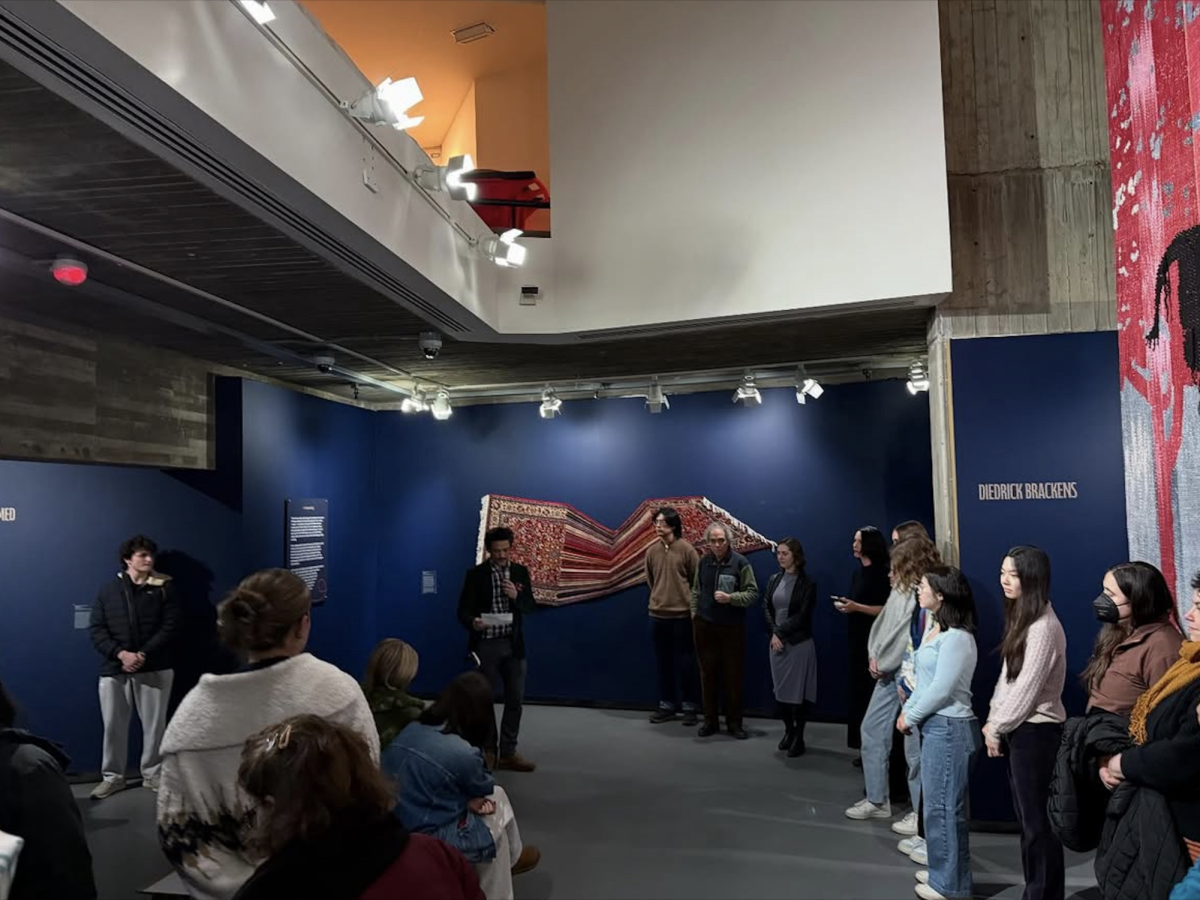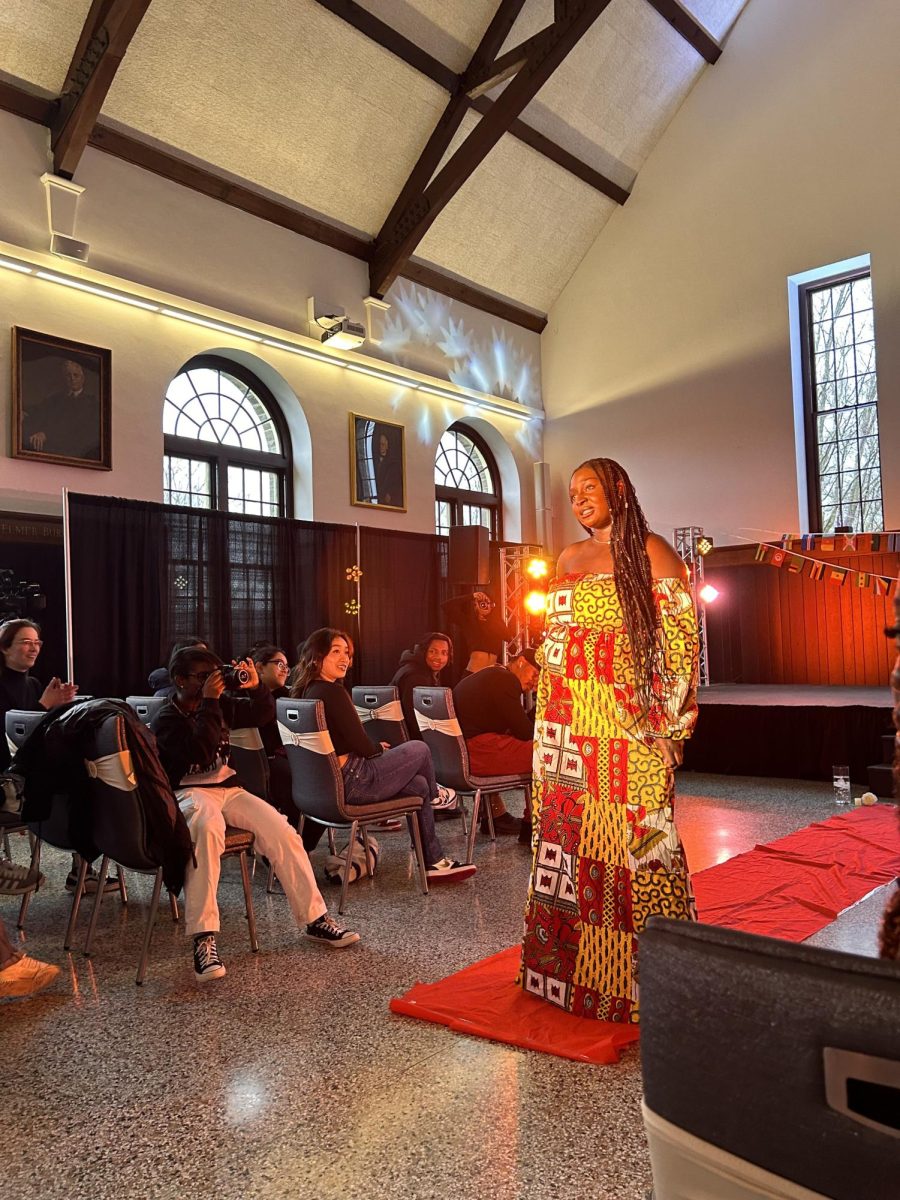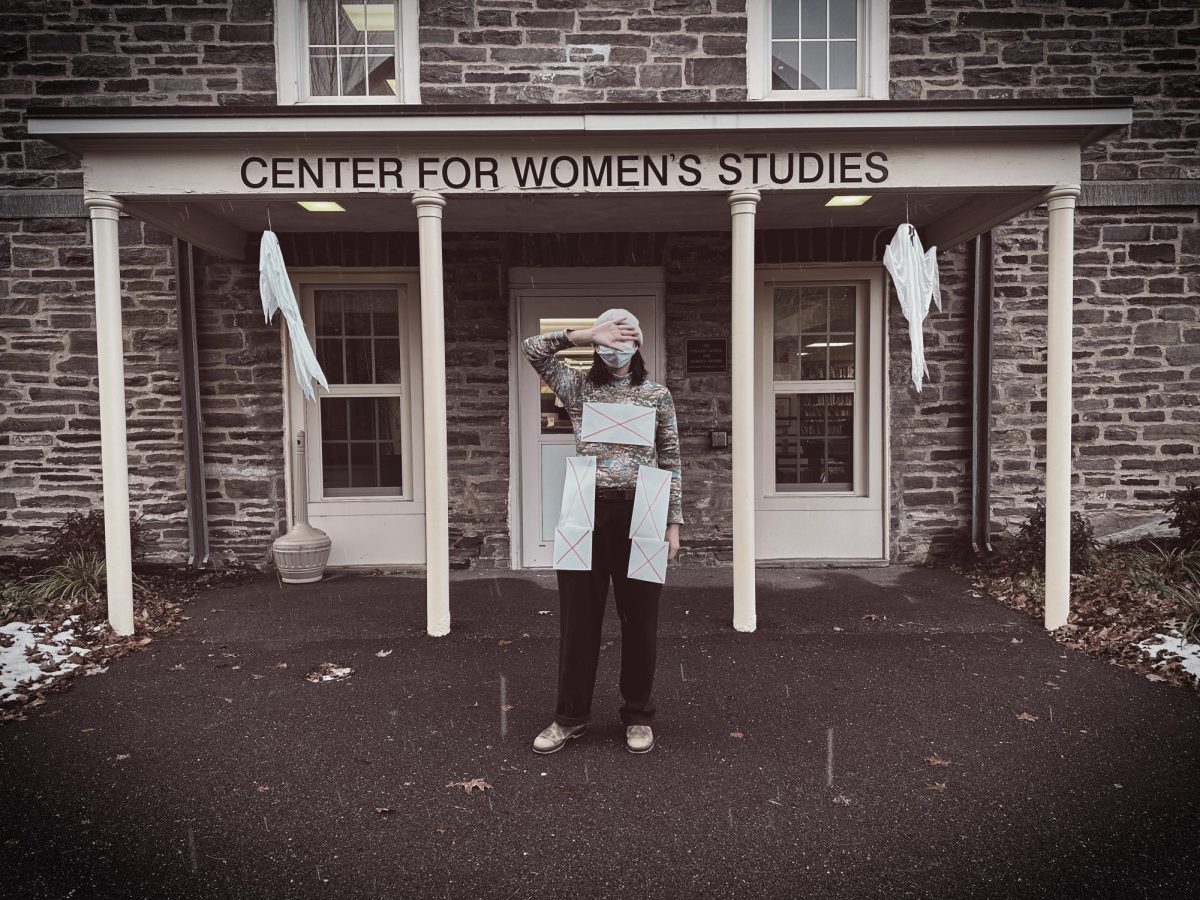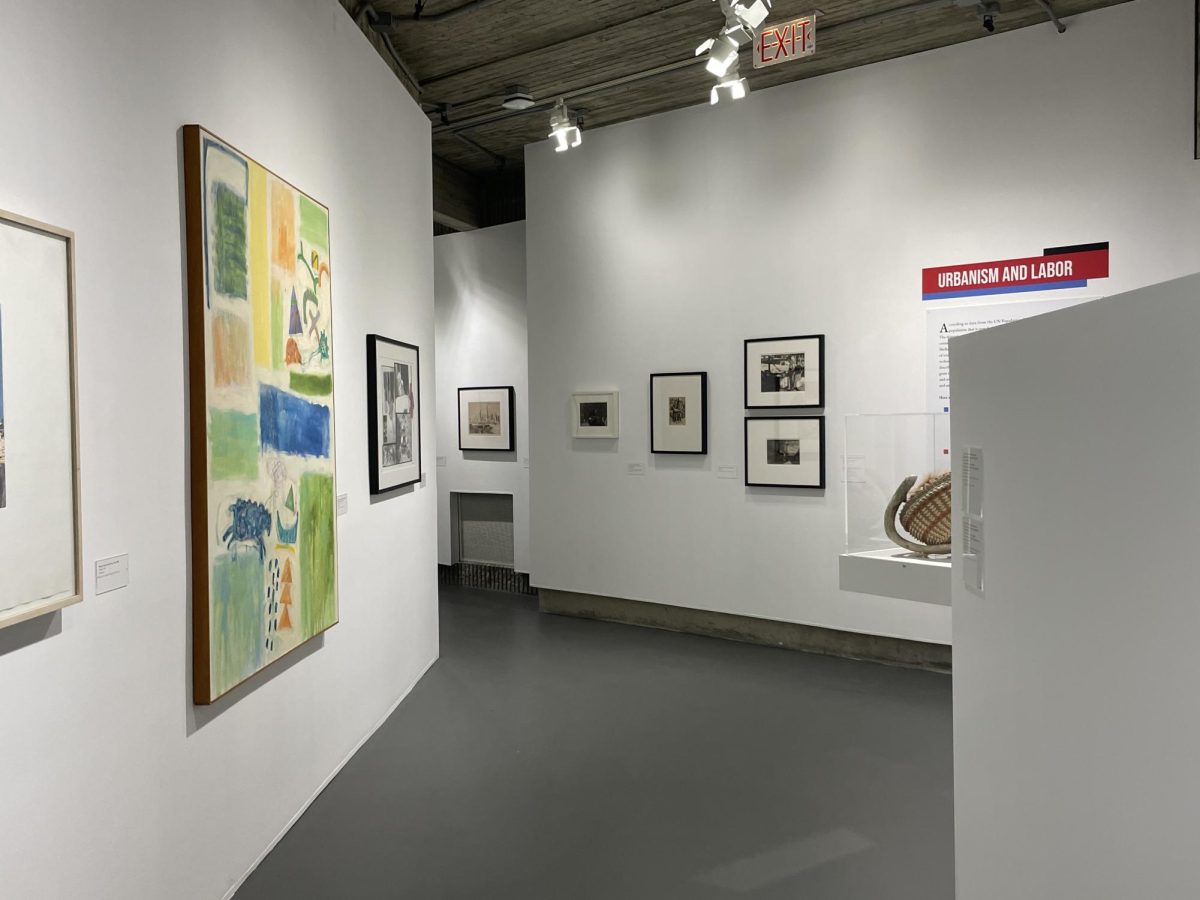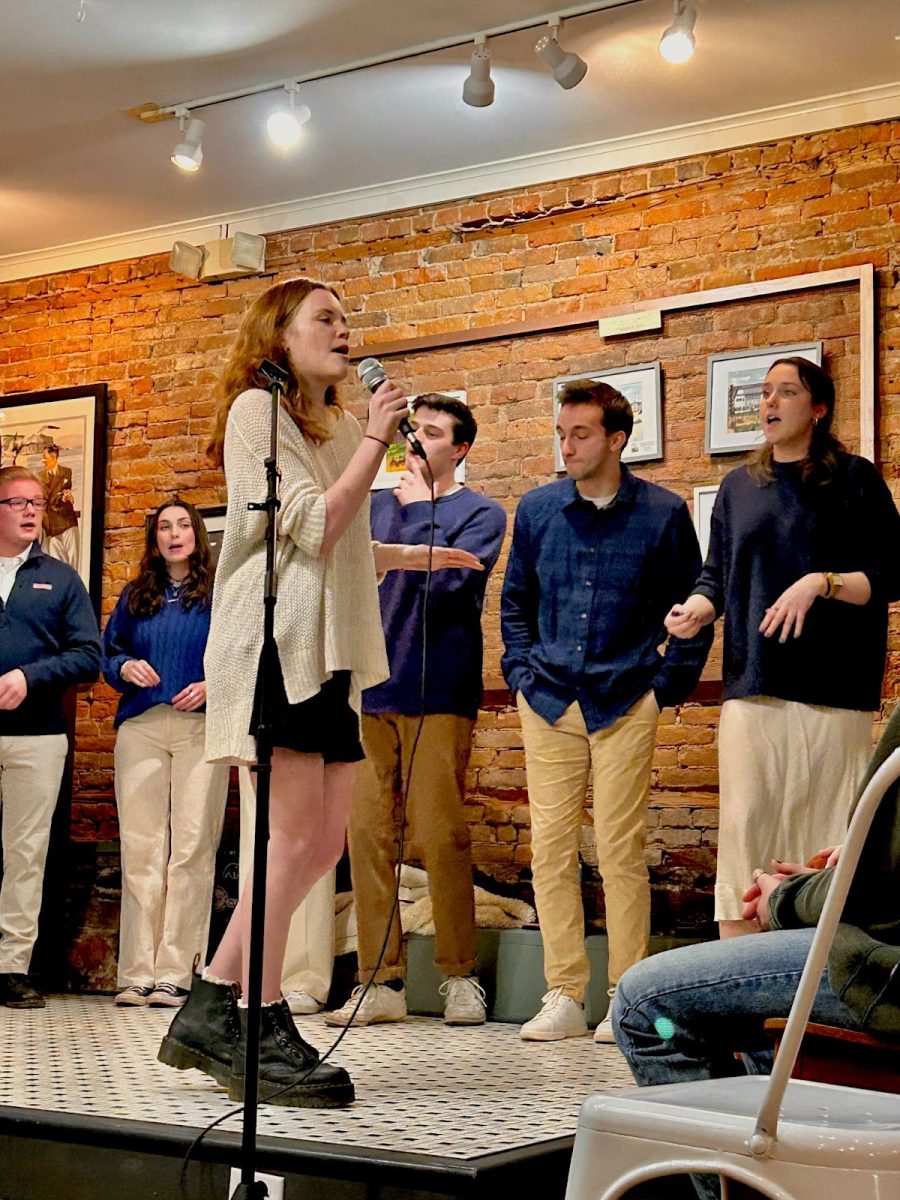Continuing an annual tradition, Colgate University’s English and creative writing department and medieval and renaissance studies program hosted its eighth Milton-a-thon Sunday, Nov. 3. Beginning at 11 a.m. in Lathrop Hall’s Fager Lounge, attendees recited passages from British poet John Milton’s ‘Paradise Lost,’ an epic poem that retells the story of Adam and Eve. In true marathon fashion, students, faculty and guests brought Milton’s poetry to life until 8:30 p.m., when the last lines were spoken.
Behind this year’s Milton-a-thon is Assistant Professor of English Tom Clayton, who has hosted three Milton-a-thons since joining the department in 2021. Clayton expressed gratitude for the existence of this tradition and its continued ability to pay homage to Professor of English Emeritus George Hudson.
“I inherited the event from [Professor of English Emerita] Deborah Knuth Klenck when I came to Colgate,” Clayton said. “I didn’t have the chance to get to know [Hudson], but he is much loved in our department. I was very pleased that [Hudson’s] widow, Chikako Ikeguchi, and his son, George Taro Hudson, joined us at this year’s event.”
To organize the event, Clayton relied on help from other English and creative writing faculty and Tess Jones, their department coordinator. Clayton expressed that he was happy to reach a broad audience within the Colgate community, also including many of his current students in the English courses ‘Milton’ and ‘British Literary Traditions.’ These courses showcase Milton’s contributions to English literature, which Clayton aimed to celebrate at the Milton-a-thon.
“Milton spent much of his career committed to the political causes of liberty,” Clayton said. “He wrote brilliantly about gender and sexuality, campaigned against censorship and tyranny and put his life on the line to say what he felt needed to be said. At the end of his days, after his political causes had failed and he had gone totally blind, he summoned all his learning and ideas and devoted himself to the composition of this magnificent poem.”
Among the attendees from Clayton’s course ‘Milton’ was senior Emmett Dowd, who listened to an hour of ‘Paradise Lost’ at the Milton-a-thon.
“I’m actually taking the class this semester all about Milton and [‘Paradise Lost’], so to be able to hear the text out loud really helped not only with my comprehension of it but also worked at letting me see how masterful Milton is with his usage of language,” Dowd said.
While the course on Milton explores ‘Paradise Lost’ in depth, the Milton-a-thon took reading the text one step further, allowing students like Dowd to gain a deeper understanding of the original intentions for engaging with this classic English work.
“When you just read something on a page, it doesn’t really have the same effect, especially with works like poems such as Paradise Lost,” Dowd said. “Being able to hear how certain lines were written sonically was a really interesting experience for me.”
To Clayton, reactions like Dowd’s encapsulate the value of engaging with classic texts like Milton’s in diverse formats.
“I love the Milton-a-thon because it brings Milton’s poetry to life and invites the wider community to share the experience […],” Clayton said. “There is something special about hearing a work of literature on this scale in its entirety, in one sitting, too. The sheer size of the poem — the long, complex sentences stretched out rhythmically over thousands of lines, the richness and breadth of its vocabulary and the unexpected turns and contradictions Milton introduces to the very familiar story about Adam and Eve, the first humans — makes me feel awe. It reminds me of what poetry can do.”
Clayton also expressed the importance of engaging with ‘Paradise Lost’ in its original spoken form.
“Like many epic poems, Paradise Lost was composed orally and designed to be heard,” Clayton said. “I was truly impressed with the students who read aloud. They read beautifully and carried the reading from beginning to end.”
Additionally, Clayton was excited that several attendees wore provided halos, horns, crowns, wigs and even a plush serpent to reenact roles like angels, God and his son, Adam and Eve and Satan, respectively. Some students who dressed up — including senior Ayla Weale — even stayed for the Milton-a-thon’s entire nine-and-a-half-hour duration.
“I actually hadn’t intended to stay for the entire time, but I got caught up in the reading of [‘Paradise Lost’], and suddenly it was dark out. I figured, why not stay until the end,” Weale said. “It was also nice to be able to experience it without some sort of assignment hanging over my head that might make reading ‘Paradise Lost’ stressful or make it feel like I had to understand everything perfectly.”
Senior Helen Lieberman found this level of commitment a testament to the strength of the English department community.
“One of my favorite parts of the Milton-a-thon is running into other friends I’ve made in the English department who are attending just for fun,” Lieberman said. “Although some students are required to attend for class, many students come just to enjoy reading and hearing Milton aloud. I think that’s such an indicator of how special the English department at Colgate is, and I’m glad I was able to take part in this tradition.”



